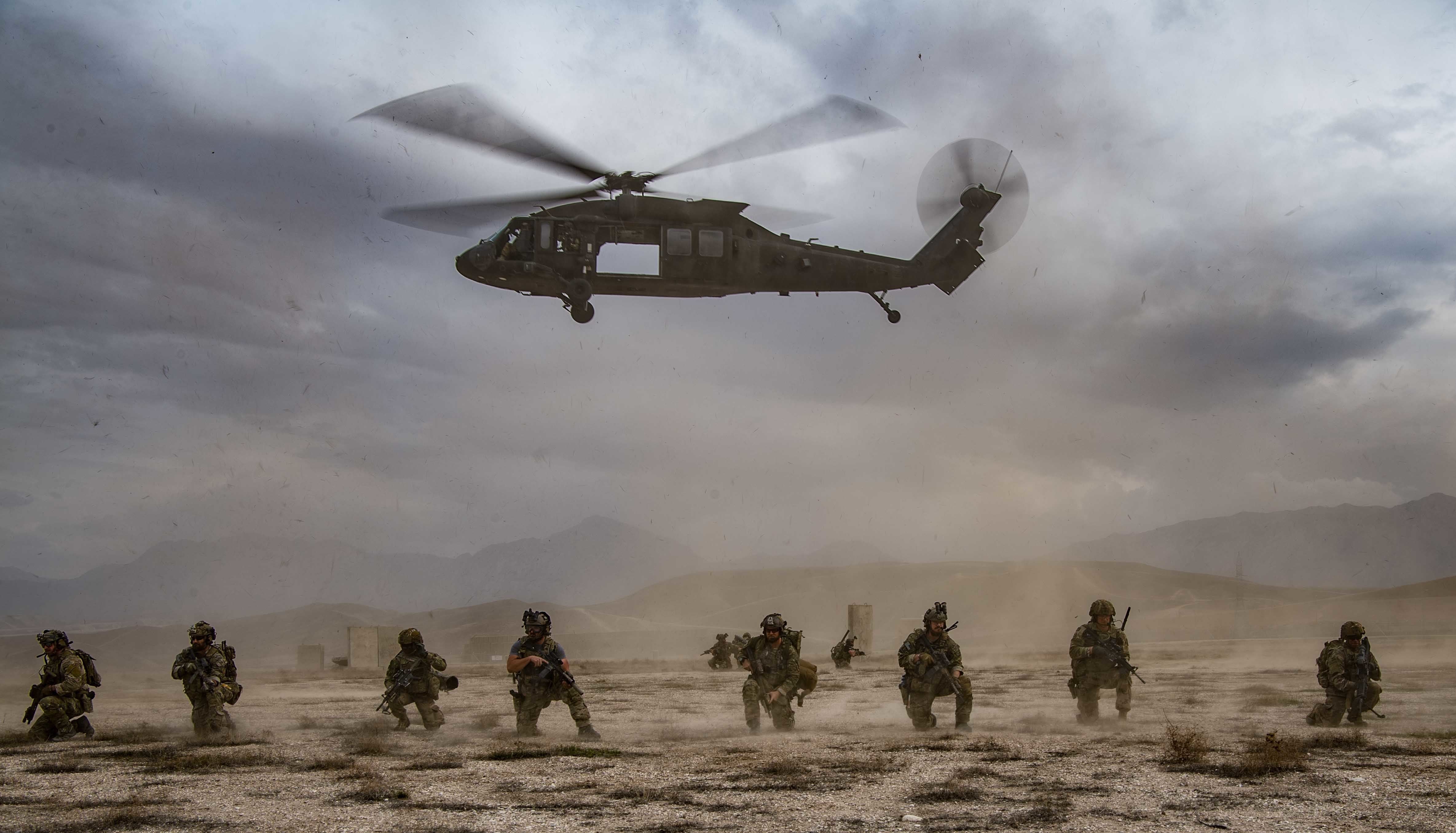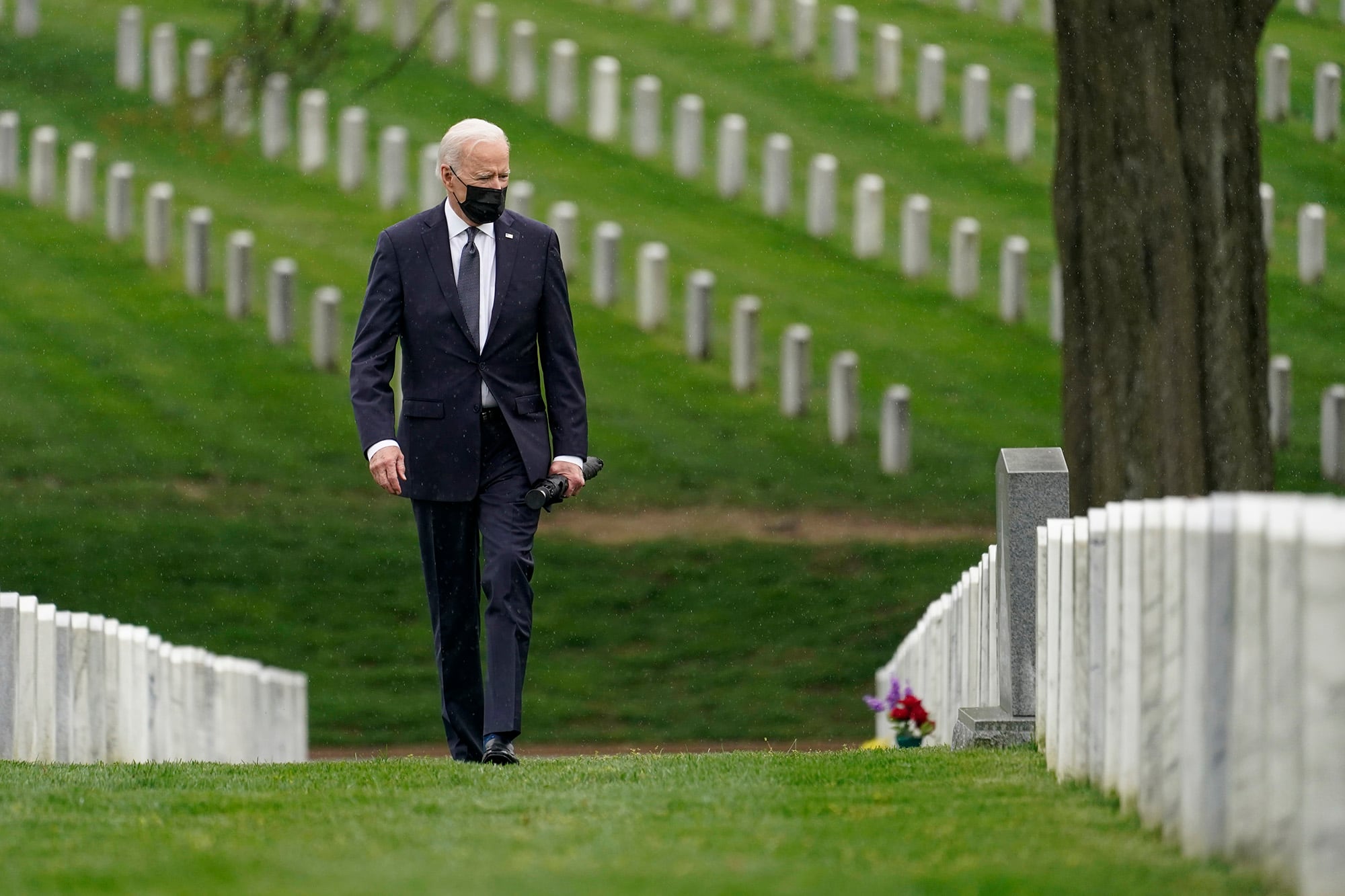President Joe Biden on Wednesday said the withdrawal of all U.S. troops from Afghanistan will begin at the start of May and finish before Sept. 11, but vowed leaders will remain focused on U.S. security as they end the nearly 20-year-old conflict.
“With the terror threat now in many places, keeping thousands of troops grounded and concentrated in just one country at a cost of billions each year makes no sense to me, and our leaders,” the commander-in-chief said in a national address announcing the plan.
“We cannot continue the cycle of extending or expanding our military presence in Afghanistan, hoping to create ideal conditions for the draw and expecting a different result. I’m now the fourth United States president to preside over American troop presence in Afghanistan … I will not pass this responsibility on to a fifth.”
The move comes after nearly 2,500 U.S. service members have been killed and more than 20,700 wounded in fighting in the Asian country following the Sept. 11, 2001, terrorist attacks on New York, Pennsylvania and Washington, D.C.
RELATED

At the peak of the conflict, more than 100,000 U.S. service members were deployed to Afghanistan, but that number has dropped significantly in recent years.
Defense Department officials have said there are about 2,500 U.S. troops in Afghanistan performing training and counterterrorism missions today. Another 7,000 foreign forces are also in the country, helping to support the still-inexperienced Afghan security forces.
Biden said he supported the initial invasion to respond to the “horrific attacks” in 2001, but questioned the current justifications for the continued deployment.
“I believed that our presence in Afghanistan should be focused on the reason we went in the first place: to ensure Afghanistan would not be used as a base from which to attack our homeland again,” he said. “We did that. We accomplished that objective …
“War in Afghanistan was never meant to be a multi-generational undertaking. We were attacked. We went to war with clear goals to achieve those objectives. (Osama) bin Laden is dead. It’s time to end the forever war.”
Last year, then-President Donald Trump announced plans to withdraw all U.S. forces from Afghanistan by May 1, 2021, contingent on Taliban leaders ending hostilities and cooperating with the Afghan government.
In March, the Special Inspector General for Afghanistan Reconstruction warned that Taliban fighters had not followed through on their promises, and the Afghan security forces are “nowhere near achieving self-sufficiency” once foreign allies leave.
As word of the withdrawal plan leaked Tuesday, numerous lawmakers criticized Biden’s strategy as amounting to a retreat, especially since troops will be withdrawn regardless if the security situation there deteriorates.
RELATED

But Biden argued that continuing a permanent U.S. military presence there risks “additional costs in lives and treasure” for the American people.
“I know there are many who will loudly insist that diplomacy cannot succeed without a robust U.S. military presence to stand as leverage,” he said. “We gave that argument a decade. It never proved effective, not [when] we had 98,000 troops in Afghanistan, and not now that we’re down to a few thousand.
“Our diplomacy does not hinge on having boots in harm’s way, U.S. boots on the ground. We have to change that thinking, American troops shouldn’t be used as a bargaining chip between warring parties in other countries.”

Biden said that over the next few months, officials will determine “what a continued U.S. diplomatic presence in Afghanistan will look like, including how will ensure the security of our diplomats.”
Following the speech, Biden visited Section 60 of Arlington National Cemetery, where many of the troops killed in fighting in Afghanistan are buried. Biden called the location “a visceral reminder of the living cost of war” and said the country should never forget the sacrifice of the hundreds of thousands of troops who served there.
Leo covers Congress, Veterans Affairs and the White House for Military Times. He has covered Washington, D.C. since 2004, focusing on military personnel and veterans policies. His work has earned numerous honors, including a 2009 Polk award, a 2010 National Headliner Award, the IAVA Leadership in Journalism award and the VFW News Media award.





